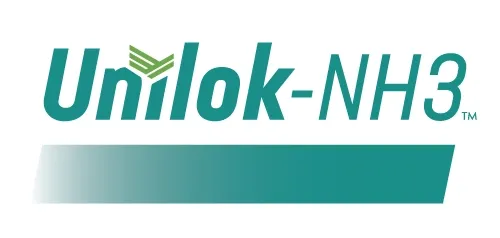Agronomy Tech Tips: Nitrogen Application — Do We Protect It or Not?







Nitrogen (N) is essential for plant growth and chlorophyll production. Without adequate N, plant growth and development suffers leading to lower grain yield; while excessive N can create an environment conducive to N loss negatively impacting the environment. Fall applied anhydrous ammonia (NH₃) is a N source for the following year’s crop, it is critical to ensure soil temperature at a 4-inch depth is consistently below 50°F before NH₃. Soil temperatures below 500o F reduce N loss as soil microbial activity is decreased slowing conversion. Fall NH₃ applications occur months before an actively growing crop making a nitrification inhibitor, to slow the conversion to nitrate, critical. Slowing the conversion of ammonium to nitrate retains the applied nitrogen in a more stable form minimizing the need for over application and ensuring adequate availability for the crop.
Nitrification is the microbial process that converts ammonium (NH₄+)—a relatively stable form of nitrogen in the soil—into nitrite (NO₂-) and then nitrate (NO₃-), which is less stable. Nitrogen is in the ammonium forms most stable in the soil as it is positively charged and is held by negatively charged soil colloids. In contrast, nitrate is negatively charged and moves freely in the soil solution. This mobility makes nitrate susceptible to leaching, especially during heavy rains, which can carry it below the root zone, making it inaccessible to plants. Please note that both ammonium and nitrate are plant available, and the use of N inhibitors applied to nitrogen reduce the risk of loss minimizing negative environmental impacts maintaining a positive return on farmers’ N investment.
Denitrification occurs in anaerobic conditions (oxygen-deprived) or saturated soil conditions where certain soil bacteria convert nitrate-N into nitrogen gas (N₂). Implementing a N stabilizer to slow the conversion of ammonium to nitrate minimizes the potential for denitrification.

Unilok-NH3™, a nitrification inhibitor containing Dicyandiamide (DCD), extends nitrogen availability in the soil, supports crop yield potential, and protects your fertilizer investment. DCD has over 30 years of proven performance in slowing the conversion of ammonium to nitrate.
Using Unilok-NH3 with your fall-applied NH₃ is essential to:
This is especially important for fall applications, as the fertilizer must remain for plant uptake the following spring.
































